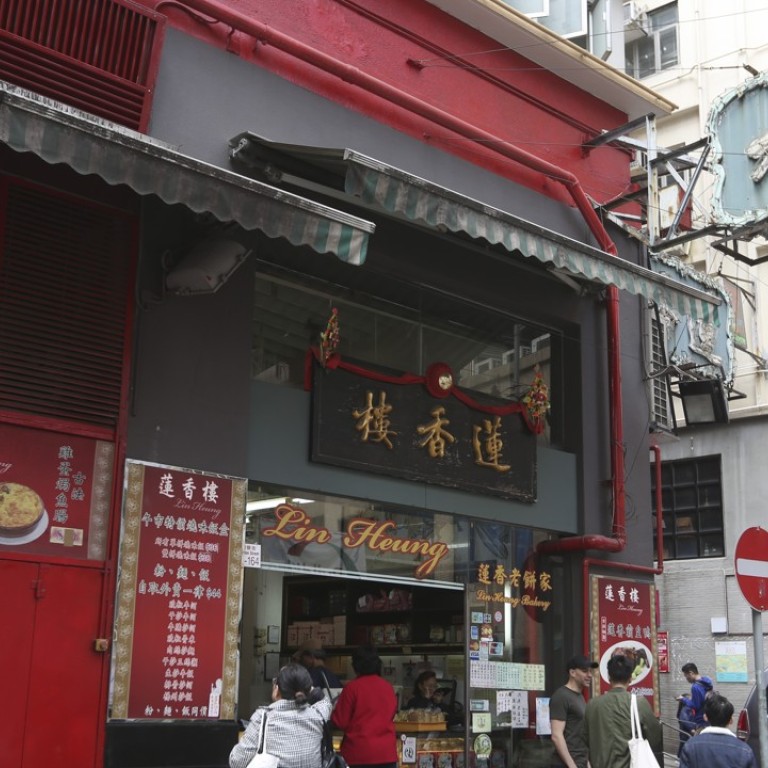
Hong Kong’s Lin Heung Tea House busier than ever as closure in prospect for Wellington Street institution 100 years old
Customers old and new are thronging Lin Heung, one of the city’s most popular Chinese dim sum restaurants, after speculation it will make way for redevelopment; a property developer has bought 90 per cent of building it’s in
One of the oldest and most popular Chinese restaurants in Hong Kong, Lin Heung Tea House, on Wellington Street, Central, is bustling on any given day.
The restaurant – which was once listed by Time magazine as the second place you must visit in Hong Kong after The Peak – has been even busier since it was reported recently that the century-old tea house may be facing closure.
Dim sum has bright future in Hong Kong despite decline in chef numbers, say industry insiders
On a lunchtime visit last Saturday, diners clamour around trolleys loaded with bamboo baskets of dim sum as soon as they are wheeled out. Finding an empty seat is like playing musical chairs, with quarrels breaking out occasionally. Customers stand around the 20 or so tables waiting for them to be vacated, leaving hardly any room to move in the tightly packed space.
The first Lin Heung Tea House was opened in Guangdong in 1889. In 1918, the owners opened three branches in Hong Kong. The only surviving branch has been at its current location since 1996, having previously been on Queen’s Road Central.
However, CSI Properties, an ambitious developer headed by chairman Mico Chung Cho-yee, bought the ground floor – where Lin Heung is located – and first floor of the Tsang Chiu Ho Building in 2015. It spent HK$355 million (US$45.4 million) to acquire 36 additional units in July 2017 and now owns more than 90 per cent of the 47-year-old property.
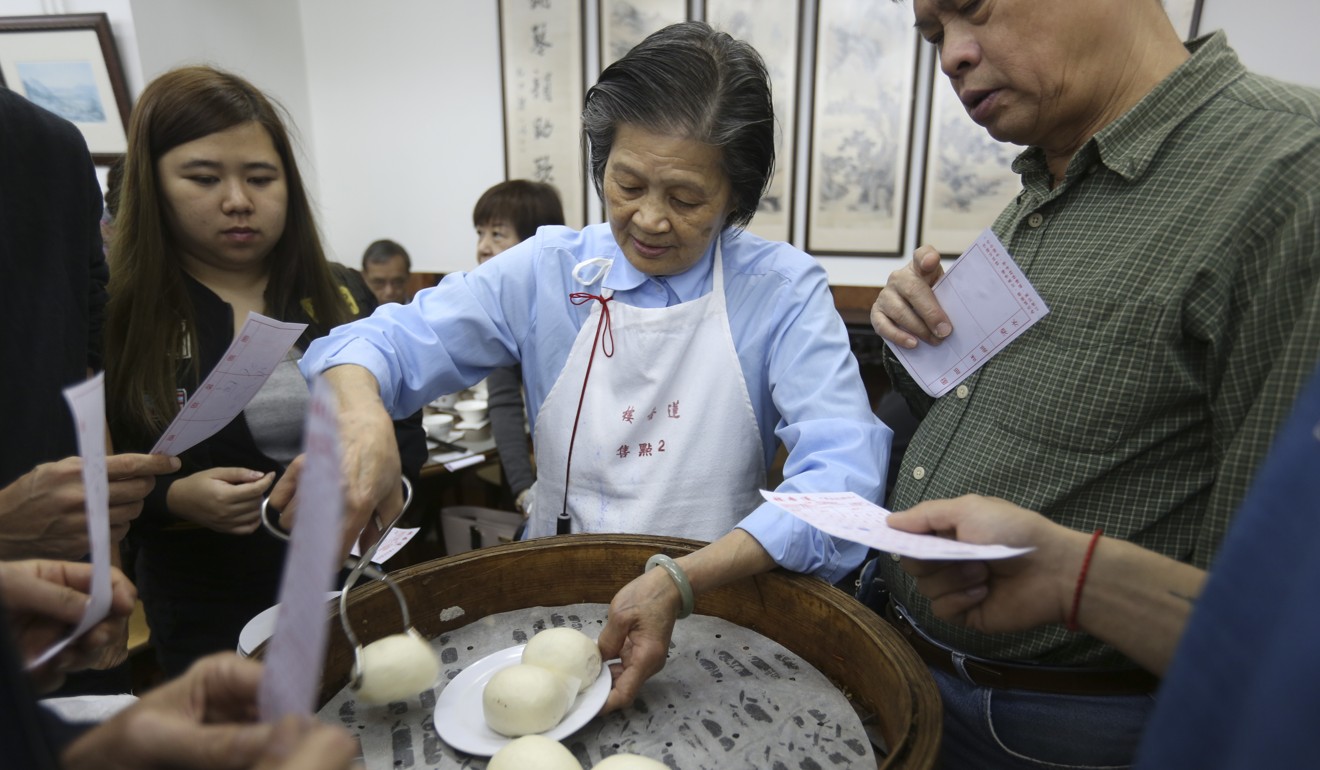
Under the Hong Kong Land Ordinance, the purchase of 80 per cent of units in a property can trigger the compulsory sale of remaining units if it intends to redevelop the site, which has prompted speculation that CSI Properties intends to do just that.
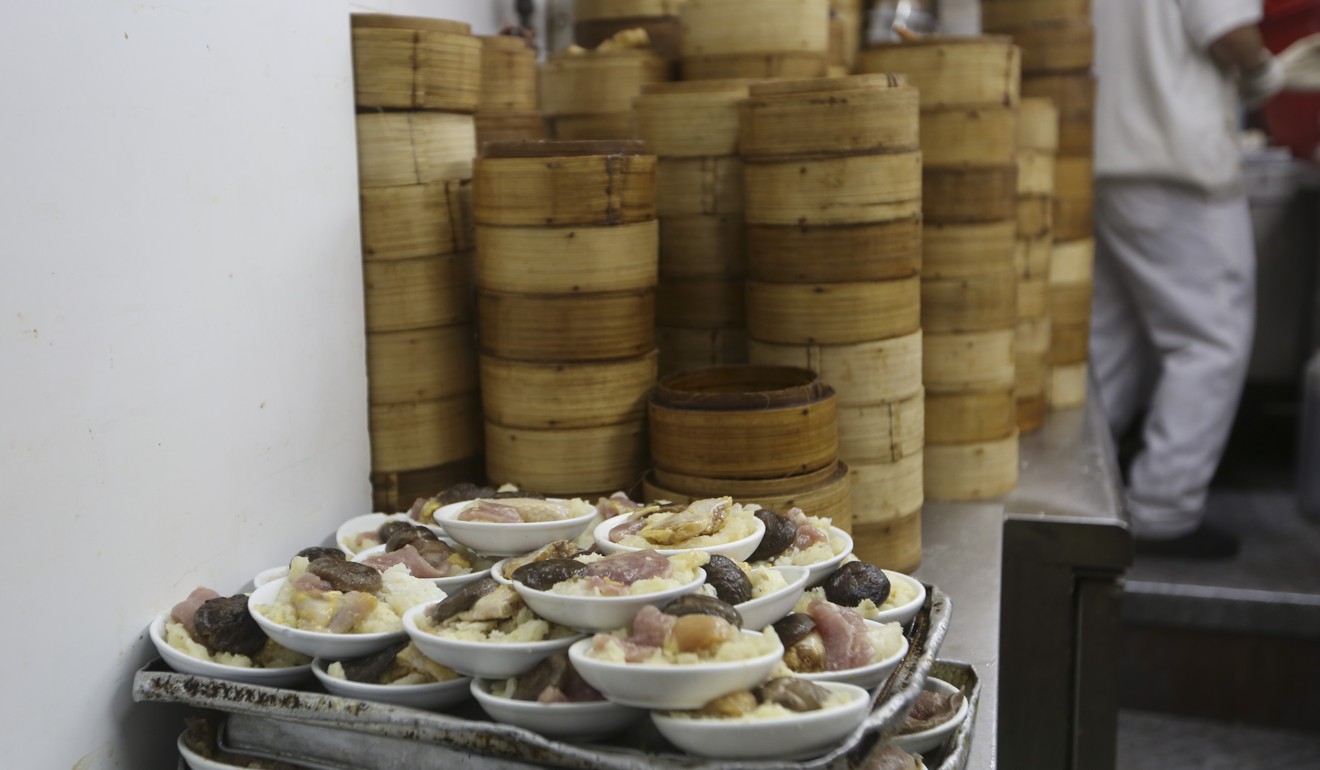
Terence Lam, a spokesman for Lin Heung Tea House, says the restaurant’s current two-year rental lease expires in the second quarter of 2019. The lease is usually renewed six months in advance, so they will not know whether the restaurant can stay put until September. So far, the owner has not reached out to them, but last week it was reported in the Chinese and English media that it may be facing closure.
Best vegan dishes in Hong Kong, from dim sum to pizza to hotpot, and where to find them
As news spread of its possible demise, customers have flocked to Lin Heung for one last taste of their favourite dim sum dishes and – in many cases – the tea.
The restaurants we used to go to as kids operated in the same way. So I am here for a flavour of the past
Unlike most modern Chinese restaurants, Lin Heung does not serve a wide variety of dim sum, but has traditional dishes that are hard to find elsewhere, such as quail eggs or pork liver siu mai, and steamed Chinese sausage rolls. All of the dim sum are rolled out piping hot on trolleys.
Instead of serving tea in pots, diners are given their own cups, which waiters top up with boiling water as soon they have been drained.
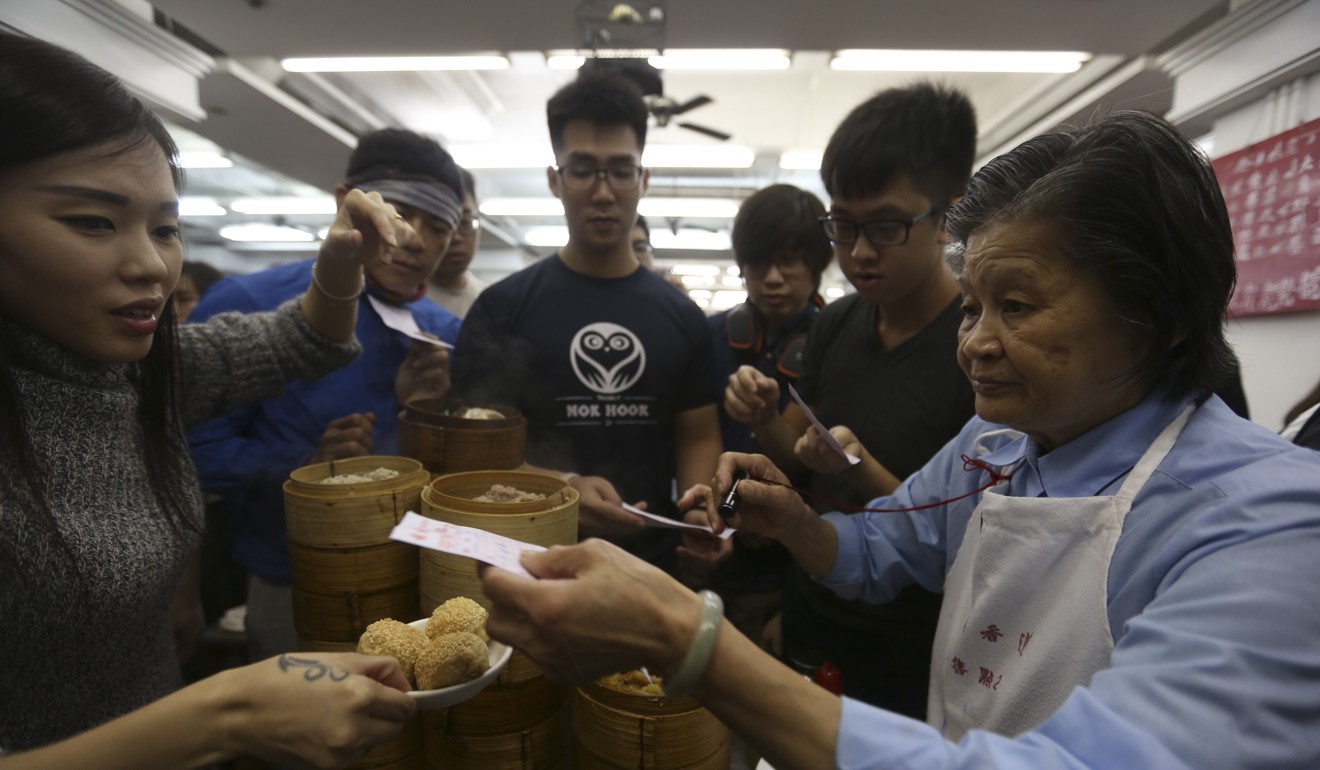
Besides dim sum, Lin Heung is also known for its pork lung soup, traditional Chinese pastries, and signature eight-treasure duck, which is stuffed with eight different ingredients – including lotus seeds, peanuts and Chinese sausage – then braised until the meat is soft and succulent.
Given how difficult it is to find a seat, Lin Heung Tea House is not the best place for big groups to dine during lunch hours. Customers often find themselves sharing a table with other diners.
The chaos is overwhelming for anyone used to more orderly restaurants, but for many customers, it is exactly what they come for.
Four Hong Kong restaurants putting a modern spin on dim sum
“The hygiene was even worse in the past, when spittoons were placed all over the floor for customers, and the food is honestly not that special,” says retiree Helen Yeung, who has dined here for more than 30 years. “But the restaurants we used to go to as kids operated in the same way. So I am here for a flavour of the past and the nostalgia.”
Keeping things the way they are was the wish of the restaurant’s late owner, Yien Chi-ren, who died in 2008. “My father ordered me not to change anything,” Ngan Chuen-fai told the South China Morning Post in 2007. “So, I will just continue to operate the business as it was started by my father.”
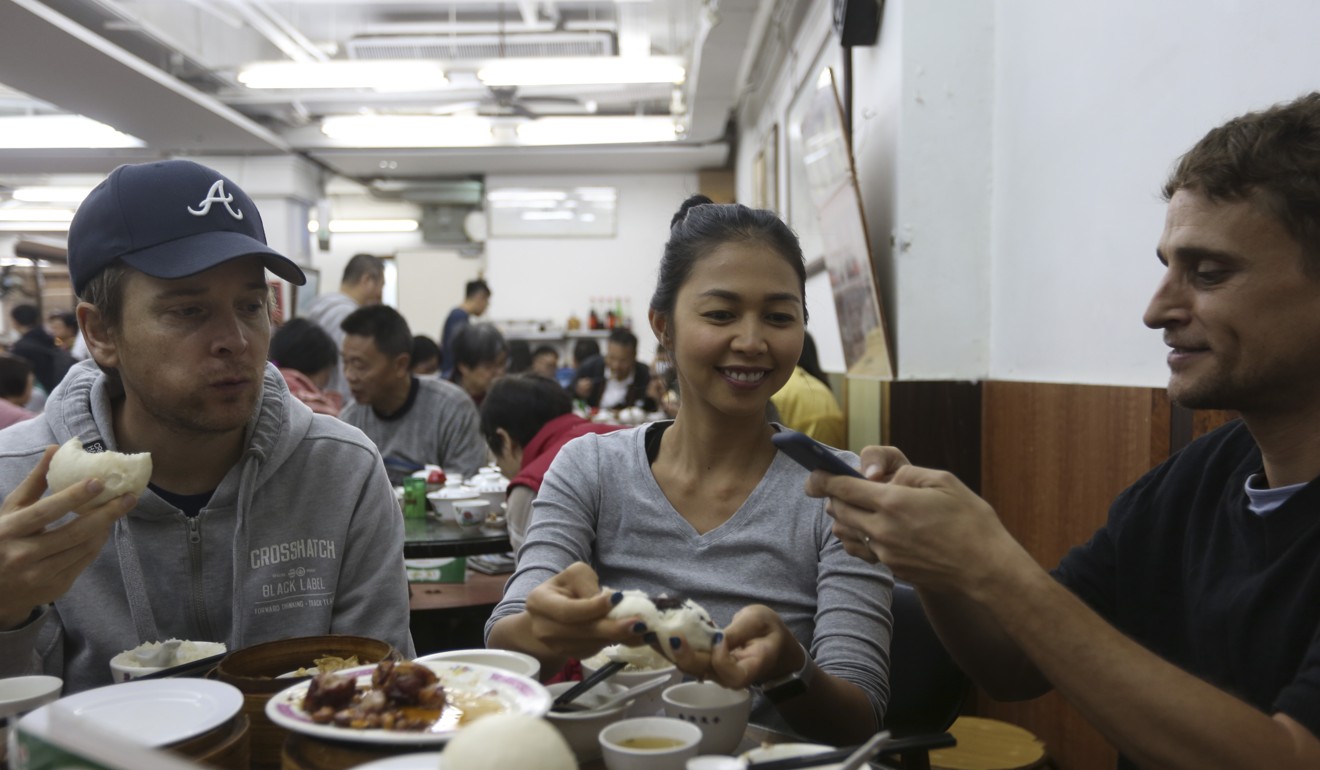
In addition to its large base of loyal locals, also attracts tourists from all over the world.
Joe, from London, came for the authentic food and experience after his wife read a positive review online.
“We went to a few restaurants in five-star hotels last time we were here but I prefer this place. The chaos make it more fun. My brother and I watched kung fu movies growing up, and often there are scenes in restaurants where there is chaos and fights start. This is the perfect place for that,” says Joe.
Court dismisses claim of Lin Heung Lau ‘copycat’
Although the restaurant may need to move to a different location, Lam, who like Yeung has been a regular for more than three decades, believes things will not change. “It has moved a couple of times before as well. It is an ancestral business. It will find a way to survive.”

